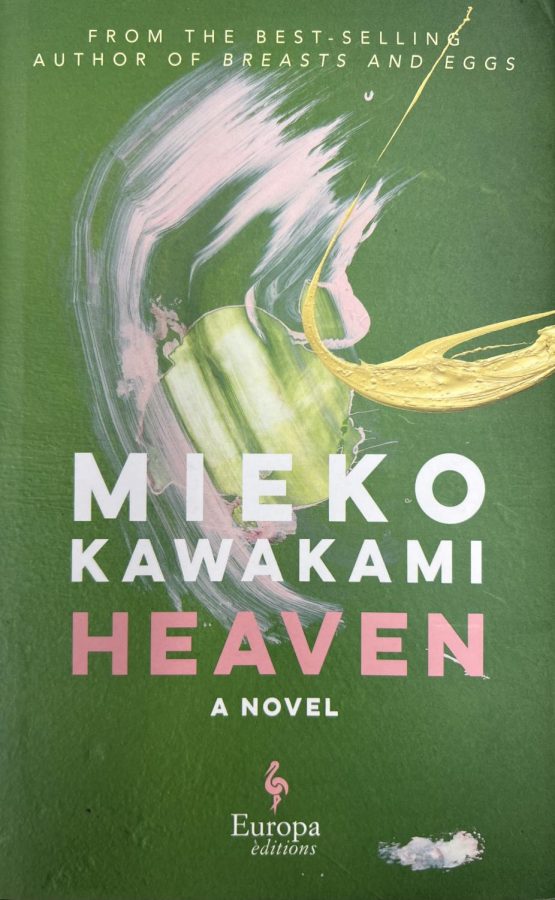Heaven by Mieko Kawakami
Mieko Kawakami’s novel, Heaven, explores the mind of an adolescent. She paints the scenes with a raw beauty, tormenting and captivating readers with each turn of a page.
What makes up a teenager’s mind? In a coming of age novel that deep dives into the psychoanalysis of different characters, Mieko Kawakami sets the scene in the early 1900s Japan.
The unnamed narrator describes the torment that he experiences due to his lazy eye. Strengthened by letters from a fellow classmate, Kojima, the protagonist braves his fears and learns to build a friendship where they are connected by a fear of pain.
Isolated in a school that is quick to alienate the two, Kojima and the narrator brave the struggles that students face. In only 175 pages, Mieko describes a haunting and pained beauty that creeps from the pages and seizes the reader’s attention.
I thought it was interesting that the book didn’t follow a typical high school romance, which many might have expected to occur. Although the two main characters shared a very intimate and emotional bond, there was no attempt to pursue a deeper relationship from either of them.
What the duo shares is their torment. Although they are present at the same school, the majority of their relationship is expressed through exchanged notes as they avoid each other and the bullying they experience. They reveal their own personal philosophies and questions that provoke the reader to contemplate deeply.
There is a raw vulnerability that adolescents are able to share before their age precedes their visions and their lights begin to fade. They are not afraid of judgment, which allows them to speak freely. Kojima characterizes this trait and is seen as a light in the narrator’s life, one that introduced him to what beauty could be and a life they could have.
The entirety of the novel also imposes a sense of uncertainty. While I could understand Kawakami’s words in a specific way, somebody else could read her tone differently. The complexity of the human condition presented in the novel is compelling and may even reveal things about the reader to themselves. The sense of self-discovery and acceptance are themes that are frequently provoked throughout the novel.
Why are people bullied? Why are people the way they are? These questions are answered, some in an unsatisfying way, and some up for interpretation by the reader.
The book was translated from Japanese into English by Sam Bett and David Boyd, meaning the fluidity of the language is not completely authentic. Still, the clipped and sharp words used to paint the scenes added to the blunt tone of the protagonist and the experiences that he narrates.
As compelling as the novel was, it is important to note that it is designated for a mature audience. The descriptions of the bullying are trigger-inducing and there is a scene that readers may find unsuitable for younger readers.
I recommend Heaven by Mieko Kawakami to those who are seeking a meaning to their existence. The book follows themes of self-acceptance, finding the beauty in each life that to some may be meaningless but to others might be their saving grace.
The narrator himself vocalizes this theme, “Everything was beautiful. Not that there was anyone to share it with, anyone to tell. Just the beauty.”

Native to San Diego, Hong-An Phan is a Co- Editor in Chief for Dons Press. After three consecutive years as part of the staff, Hong-An is looking forward...





















































